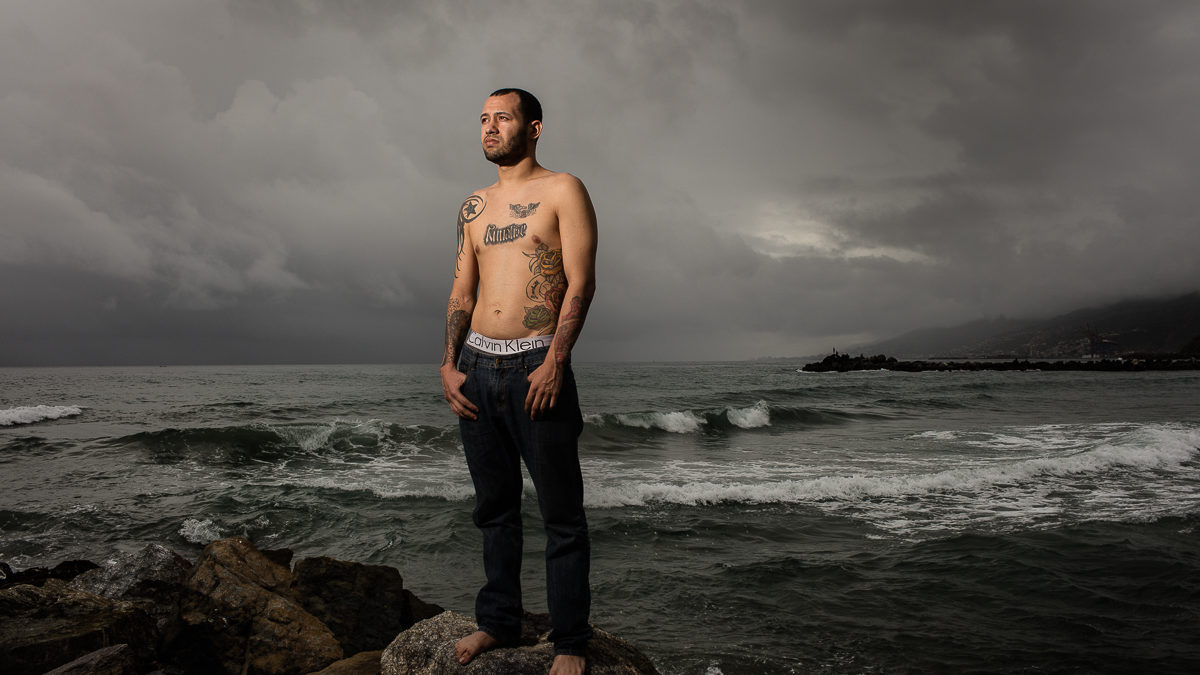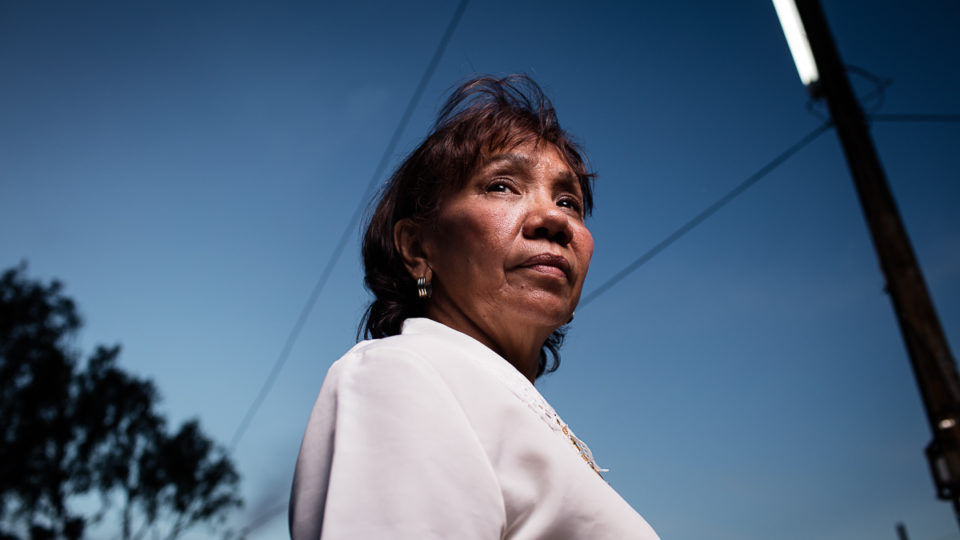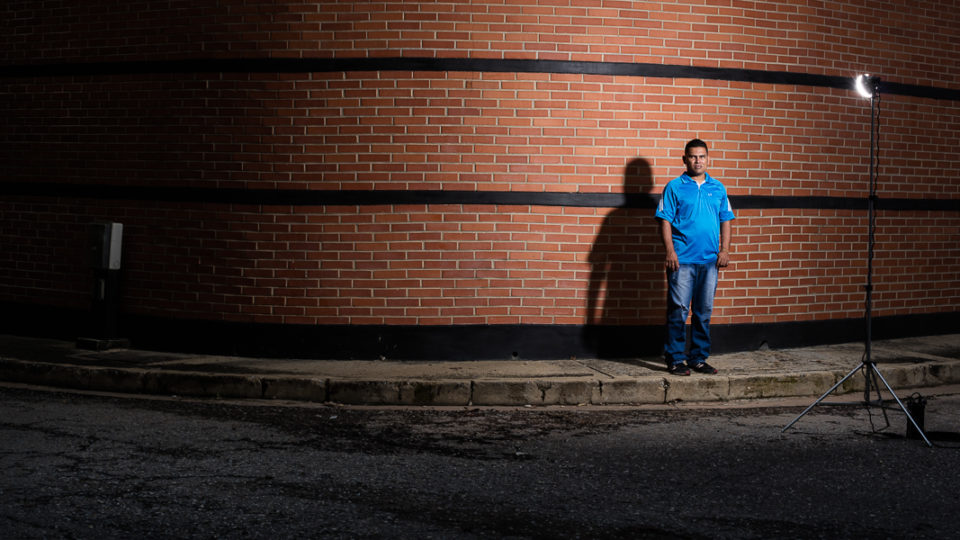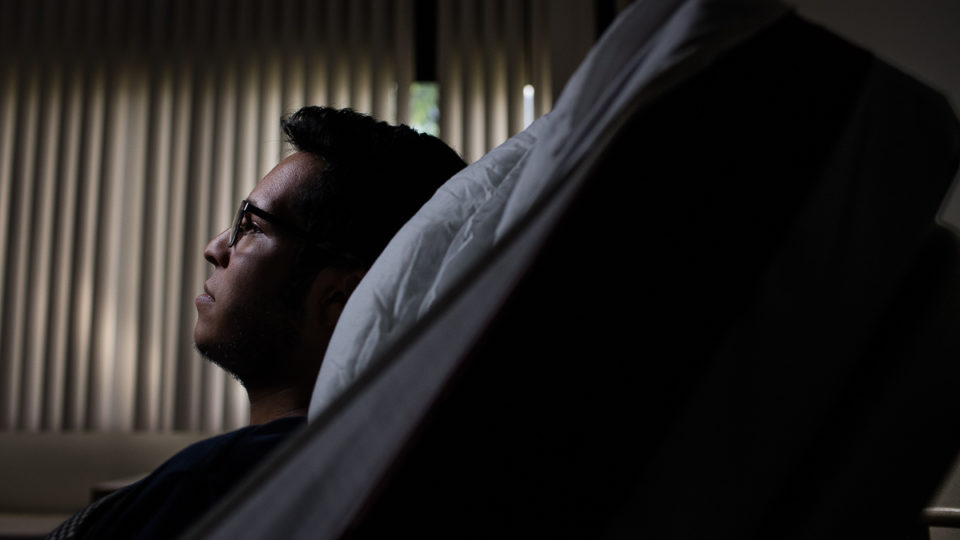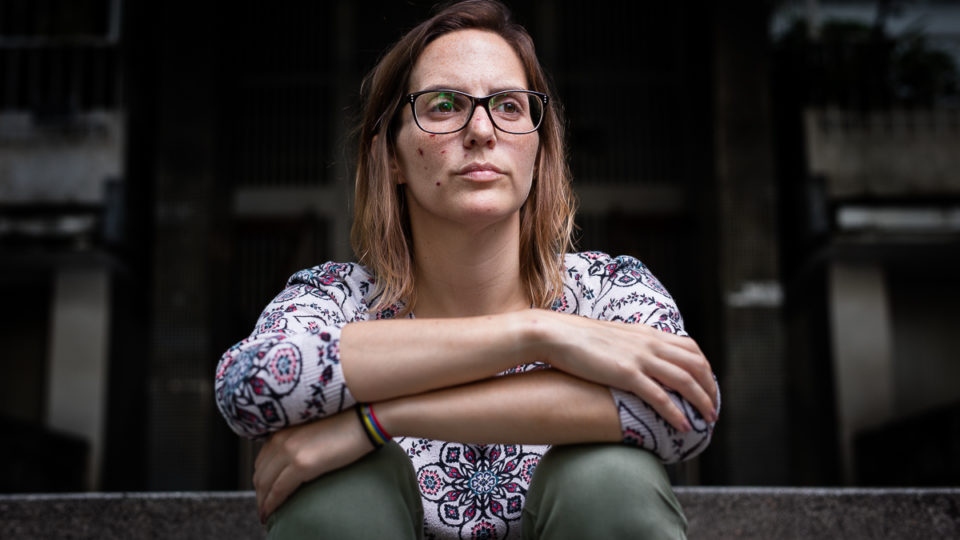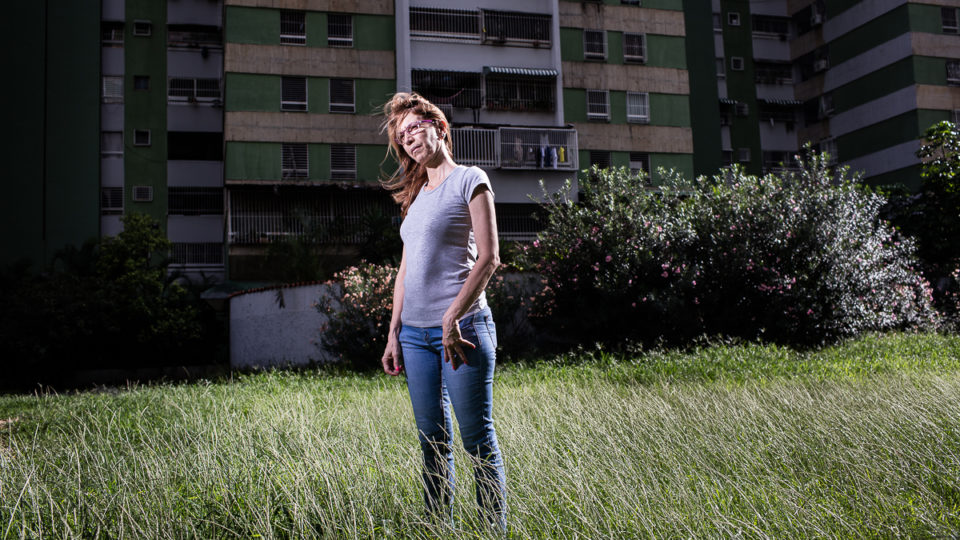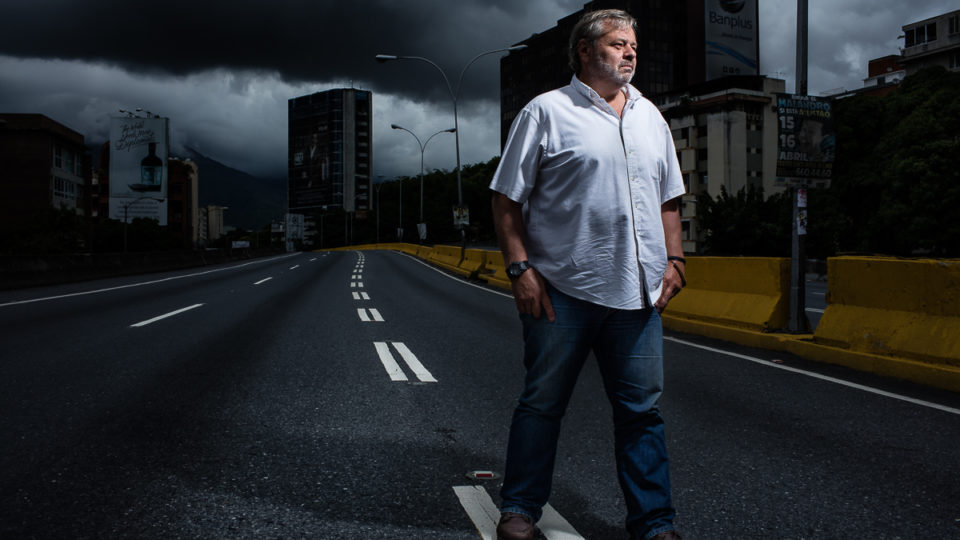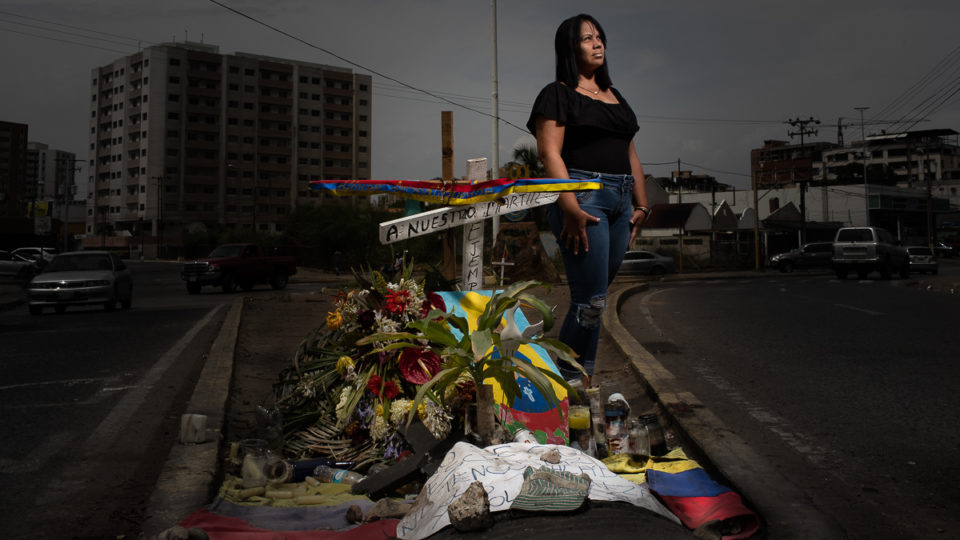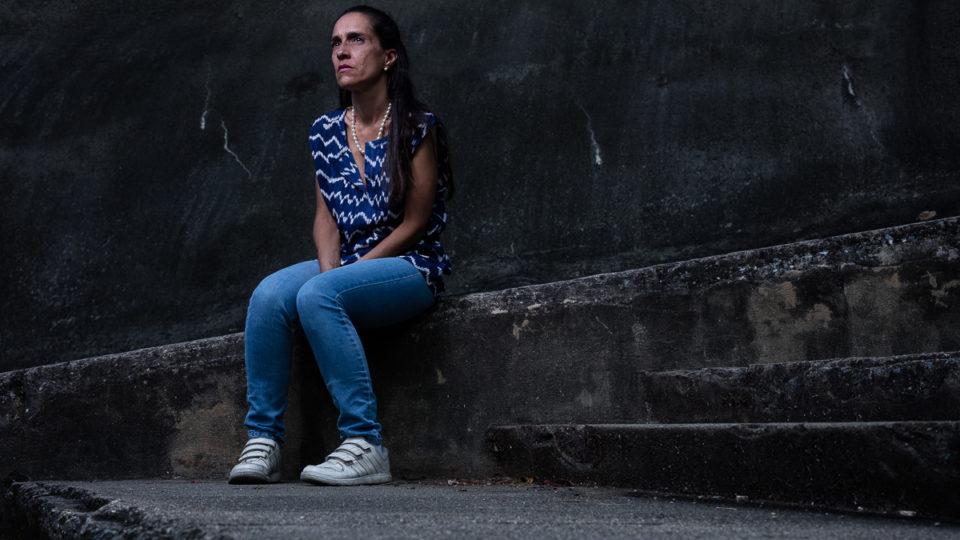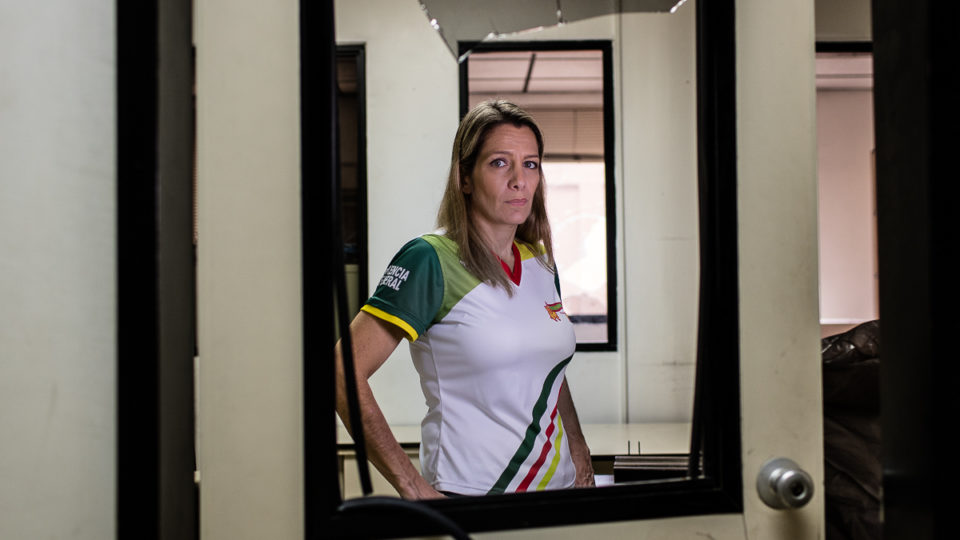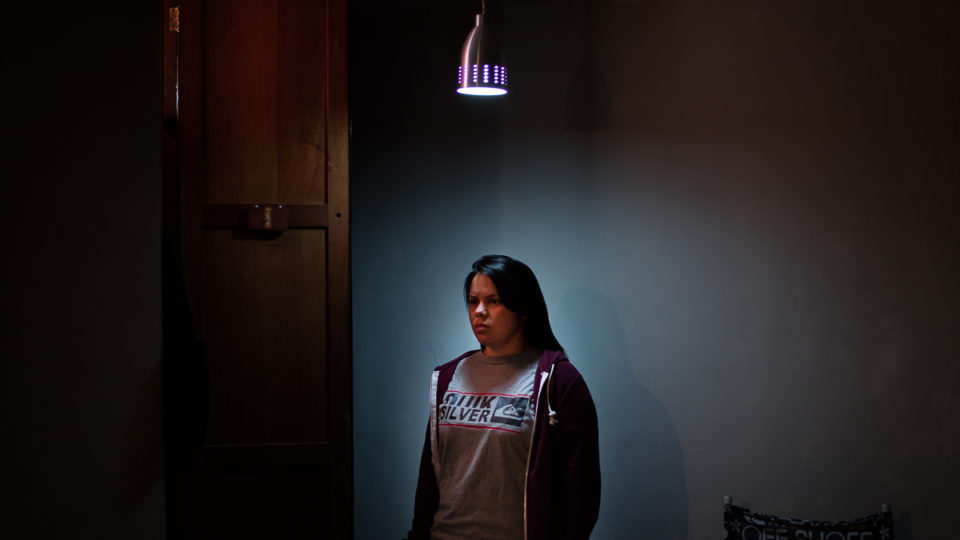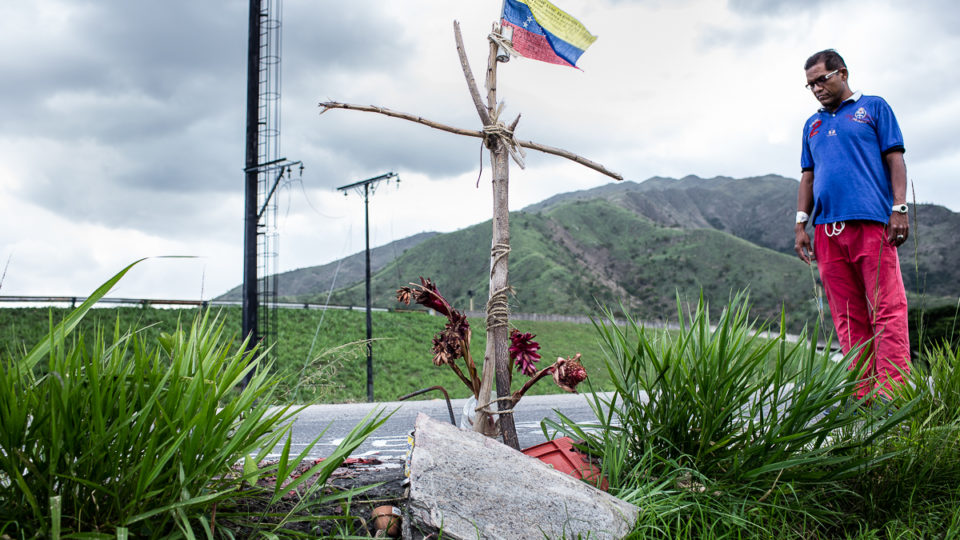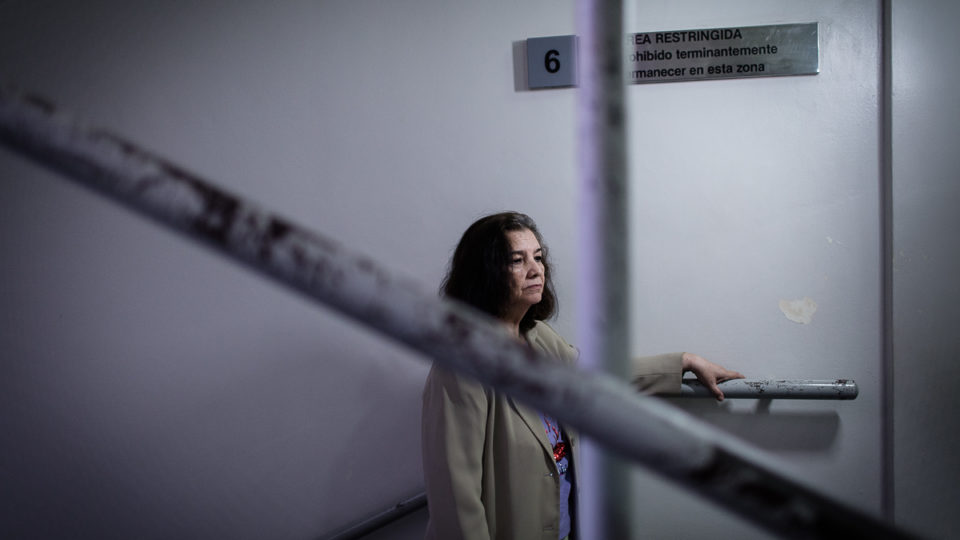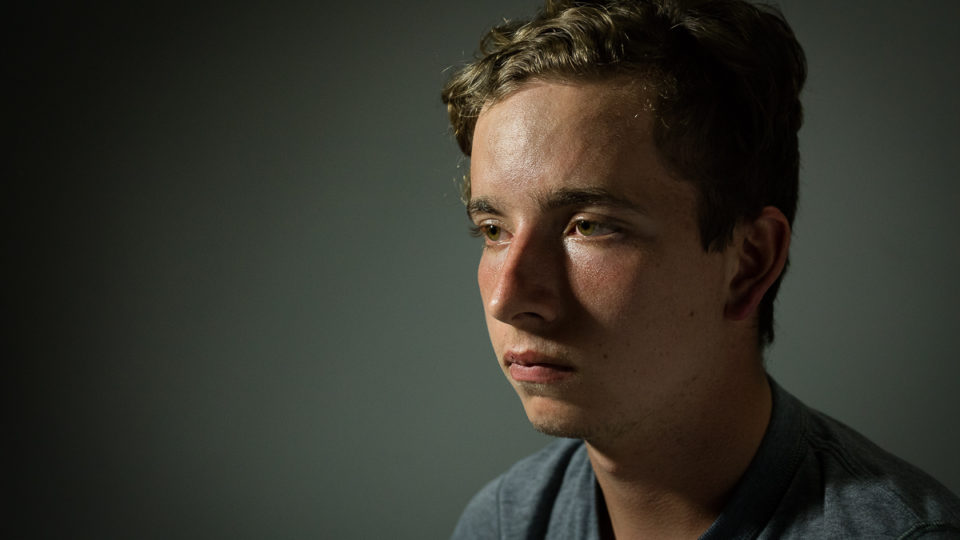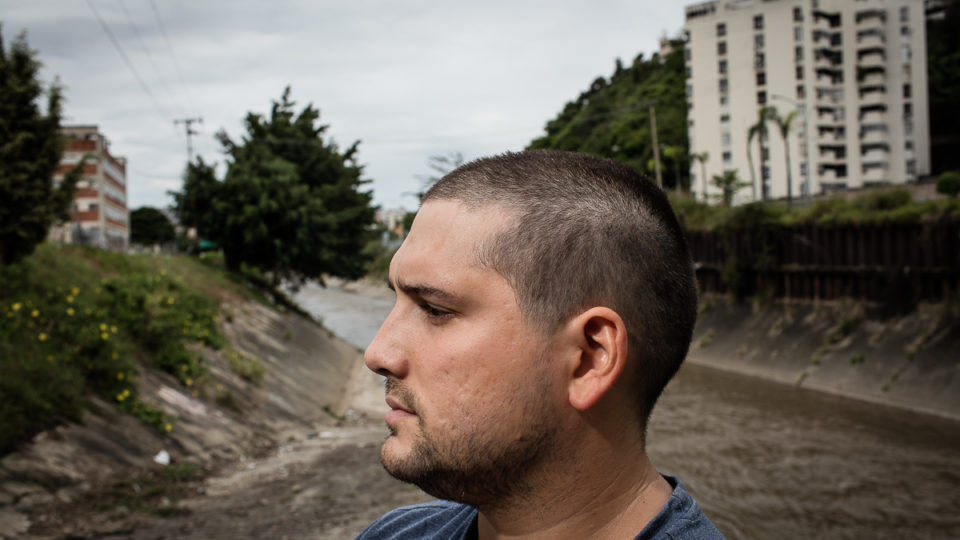Testimonies 2017
“I am in prison in the street just the same”
Manuel Velásquez
stopping the bus in the highway. We stayed at a friend’s house in San Martín. We were six neighbors from La Paz in Catia La Mar. Childhood friends.The day dawned peacefully. We were going to join the concentration at El Paraíso. We only had to cross San Juan bridge. Other people were doing it so we joined them. It was nine in the morning and a platoon of the GNB with shields was at the other side. We never made it to the concentration.
They surrounded us. They arrested us. We were twenty, between men and women. They separated us. They took us men to the entrance of a building. They built a Wall with their shields and forced us to kneel down.
—Where are you going? What’s in those backpacks?
—Clothes, masks, flags.
They ransacked everything. They beat up one of my friends and we became angry. People were coming over to see what was happening.
They took to another building and made an even bigger wall with their shields so no one could see.
—Guarimberos! Why are you marching? Pile of cocksuckers!
—We are marching because we don’t like what is happening in Venezuela.
I feel like I have lost my youth. I have a daughter that’s one year and two months old and I can’t live with her
because I can’t afford to pay rent.
People started to throw stones and film everything with their smartphones. They took us to the 433 GNB detachment in El Paraíso. They made us undress in the patio. They ransacked the backpacks again. They doused us with water and vinegar. I never knew what for, though I think it was because they knew they wouldn’t let us shower the next few days. We were the six friends and two more from Caracas, dressed, in a small room next to portraits of the higher command of the GNB. There they handcuffed us. I thought I got arrested to prevent people from marching, but at that moment I thought: I’m in prison.
People from buildings near buy were banging pots and crying aloud that they let us go.
They took us to have our photograph taken next to the evidence of our arrest already laid out on a table.
Backpacks, clothes, masks, flags and behind a big GNB sign. On the same table they put Molotov bombs, drugs, marihuana cigars, knives, stones, marbles.
—That’s not ours! You are not taking my photo with those!
They tried to hit us.
A lieutenant approached us, heard our explanation and ordered them to remove the things that were not ours. They took the photo.
For five days we sat on the floor in a room of four square meters in size. The first two days without food. They told our families we weren’t there. On the fourth day, I was beaten with a helmet and a baton, for no reason. They didn’t let me go to the toilet, I couldn’t sleep that night trying to hold it and I peed myself. That’s how I presented myself to court on the fifth day, filthy.
María Fernanda Torres from Penal Forum, that’s the name they yelled at us. That’s the lawyer!, said from afar the father of one of my friends when we entered the courtrooms.
Out of the eight of us, one was released early because there was very strong pressure on social media. He is a swimming coach. I understood much later the phrase, one leaves and seven will stay. We had not been charged with anything yet but they already knew that seven would stay.
the father of one of my friends when we entered the courtrooms.
Out of the eight of us, one was released early because there was very strong pressure on social media. He is a swimming coach. I understood much later the phrase, one leaves and seven will stay. We had not been charged with anything yet but they already knew that seven would stay.
The judge said:
‘You will be jailed for having a nervous attitude in front of the GNB, until you bring guarantors’.
The file of the GNB said:
‘Incitement to loot a bakery and setting a patrol car on fire during the night’.
The lawyer tolds us: ‘This will take a week’.
At two in the morning we were moved to the jail room in the same detachment. We were already sentenced. We woke up twenty prisoners. Robbery, drug trafficking, squatters, theft, murder and other protesters like us in twelve square meters. A door with bars, a very high window, four hammocks and no lightbulb or electricity. With knives tied to their wrists, they cornered us and started asking us questions:
—Why did you fall?
—Who has been the policeman?
—Who has been the security guard?
—Who has been snitching on someone?
‘Witches’ are those who answer yes to any of these questions. They have to clean excrement and get beaten and stabbed when criminals need to vent themselves. There were three witches from the moment I went in until I left. The same.
My mom brought me a new pillow to the courtroom. Someone from a hammock requested it and I gave it up. I never used it. I spent the night in a squatting position. At dawn we were told what the rules were:
underwear can’t be touched. Nothing can get lost. It’s ok if you want to share your stuff, nothing is forced.
I learned to go to the toilet in front of 26 people.
We were told that Sunday was visit day and there was a shower. I showered for the first time to see my mom. She was devastated but gave me support. She couldn’t stop crying, worried about my studies and my job. She brought me food and candies.
That night a chocolate was missing and a fight broke loose. I fractured two fingers on my right hand and I fainted. My friends tied my fingers with a spoon and cloth to hold them together. My hand got swollen and purple.
Those wounded have to heal themselves in the jailroom.
I think it was inconvenient for them to have me like that and have the media find out. The took me to Pérez Carreño Hospital, in handcuffs. I walked in ashamed and nobody wanted to deal with me, until a doctor showed some mercy. She took my X-rays without the handcuffs.
—You need an operation immediately, but we don’t have the supplies. I will give you an appointment a month from now to give you time to find Povidine, gauze, 2.8 millimeters Kirschner wire, anti- inflammatory.
She put a splint.
A blister on the sole of my foot got infected and it opened a hole of two centimetres in diameter that wouldn’t let me walk. I earned one of the hammocks. I spent up to three days lying down, reading Paulo Coelho, from six in the morning until six in the afternoon. Two books per week. I couldn’t read at night because of lack of lighting.
While eating lunch, I uncovered a message wrapped in cling film hidden in the rice: two will leave today.
I left on May 19 at nine in the evening, after signing with my left hand a letter that said that I wasn’t attacked verbally or physically by GNB. My two uncles are my guarantors. It took one month for the judge to issue the bail. I had been in prison and had lost my fear of the government. I am in prison in the street just the same.
I lost what I had with me when I was detained: the cellphone and the gas mask a brazier that lives near my house lent me. I left everything I had in the dungeon. At that hour there were tanks, motorcycles and tear gas in El Paraíso. My mom and I managed to get a taxi to Catia La Mar. When I arrived the first thing I did was give my grandmother a hug.
I have to show up in court every 23rd of every month for eight months. The take a photograph every time I go and they don’t give me a document to certify I went. I lost the semester at university for my absence. I had all my subjects above 14 points. I didn’t have the hand surgery even though my mom found all the supplies. They wouldn’t let me, because by the time I was released, the bones were badly stuck together. I can’t close it and my handwriting is now like a child’s. I was fired from my job (supervisor of a fast food restaurant at Simón Bolívar Airport). If I leave the country and I don’t show up, I couldn’t enter Venezuela again.
I have 17 tattoos. I had the first done to honor my father, it says: Manuel. He died of cancer nine years ago, on a Father’s Day”.
Manuel Velásquez, 28, software technician, student in Environmental management, Bolivarian University of Venezuela
